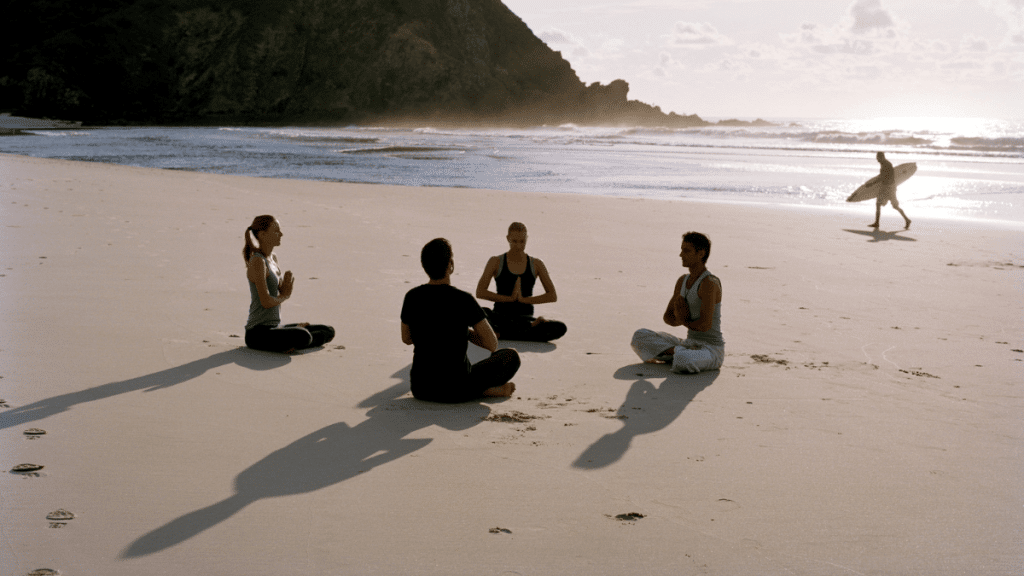Reconnect: The Healing Power of Australian Nature

In a fast-paced society dominated by screens, deadlines, and unrelenting newsfeeds, the call of the wild is therapeutic rather than only lyrical. From coastal cliffs and rich rainforests to tough desert and peaceful bushland, Australians are lucky to have some of the most amazing natural settings on Earth. Many of us, meanwhile, overlook exactly how much our surroundings may help with our mental health.
Connecting with nature in Australia offers more than simply a beautiful view—it brings healing, whether you’re a weekend hiker, beach enthusiast, or just need a break from urban development. This article looks at how time spent in Australian nature is changing lives, helping Australian mental health, and why we should now more than ever return to the great outdoors.
Nature as Medicine: The Science Behind It

Let’s get one thing straight—this isn’t just about “feeling good” after a bushwalk. The mental health benefits of nature are increasingly recognised by scientists, psychologists, and public health experts. The practice of “nature therapy” (also known as ecotherapy) is being prescribed globally, and Australia is embracing it too.
A growing body of research shows that regular exposure to natural environments can:
- Reduce stress and anxiety
- Lower symptoms of depression
- Improve mood and self-esteem
- Enhance cognitive function and creativity
- Promote better sleep patterns
Reduce mental fatigue and burnout
Studies conducted in Australia, including those by universities like Deakin and the University of Melbourne, have highlighted the tangible benefits of green spaces on Australian mental health. One study even found that people living near parks or coastal areas report significantly higher levels of life satisfaction and lower psychological distress.
The Aussie Advantage: Unique Landscapes for Unique Healing
Australian nature isn’t just any nature—it’s vast, diverse, and uniquely healing.
The Bush
The scent of eucalyptus, the crunch of dry leaves underfoot, the sound of kookaburras in the distance—spending time in the bush taps into a primal calm. The Australian bush offers solitude, grounding, and sensory richness, all essential for stress recovery and mindfulness.
The Beach
Australia’s coastline is world-famous for good reason. Whether it’s Bondi, Broome, or a secret cove in Tasmania, the ocean’s rhythmic waves and salty air are natural mood boosters. Saltwater swimming has even been shown to help with mild depression and seasonal affective disorder.
The Outback
The sheer expanse of the outback offers perspective like nowhere else. It’s a place for reflection, disconnection from digital noise, and reconnection with self. The raw beauty of red earth under a star-filled sky is unmatched in its spiritual and psychological power.
Rainforests and National Parks
Queensland’s Daintree or Victoria’s Otways—lush, green, alive. Walking through ancient forests can invoke a sense of awe and wonder, feelings closely linked to reduced rumination (a key factor in depression and anxiety).
Nature Therapy in Practice: How to Tap Into It

You don’t need to move to the wilderness to access the benefits of Australian nature. Nature therapy can be as simple or immersive as you choose.
Here are practical ways to integrate it into your lifestyle:
- Green Commutes: Walk or cycle through a park instead of taking the bus when possible. Urban greenery has been shown to ease mental strain.
- Micro-Adventures: A short bushwalk or coastal walk on weekends can do wonders for mental clarity.
- Mindful Nature Time: Leave your phone at home, and take 20 minutes to sit under a tree or watch waves roll in. Engage all your senses.
- Forest Bathing: Originating in Japan, “shinrin-yoku” involves slow, meditative walks in forests. Australia’s national parks are perfect for this practice.
- Outdoor Exercise: Swap the gym for a trail run or beach yoga. Exercise combined with nature amplifies mental health benefits.
- Volunteering in Nature: Joining a local Landcare group or community garden not only connects you to nature, but also to people—a bonus for emotional wellbeing.
The Role of Culture: Indigenous Wisdom and Connection to Land
Indigenous Australians—especially those from Torres Strait Island—have long experienced the restoring power of going back to Country. Apart from being culturally important, land connection—also known as ngurra—is both spiritually and medicinally important. In the realm of mental health in Australia, strategy creation is starting to reflect this point of view.
Programs including Indigenous-led nature therapy approaches—such as bush tucker walks and on-country healing camps—are changing the way mental wellness is being addressed. These initiatives help to close the distance separating conventional thought from contemporary psychology.
Honouring Indigenous knowledge offers polite and very effective means of long-term mental health treatment for Australians.
Nature as a Public Health Asset

Given growing rates of anxiety, depression, and burnout—especially in light of the epidemic—public health officials are giving nature therapy first attention.
Some local governments are encouraging people to attend parks, take guided walks, or spend time in surrounding reserves as part of their mental health regimen by including “green prescriptions” into their wellness programs.
Melbourne has even experimented with “green time” during lunch breaks to assist office workers in combatting stress and improving morale. The results are happier employees and higher performance.
Not only about preservation, but also about national mental health, investing in and safeguarding Australian environment is direct investment in Australia.
Urban Planning and Mental Wellness: Designing with Nature in Mind
Not only do people benefit, but our cities also do. Urban designers are giving access to green areas first priority since they realize that well-designed communities can help millions of people with their mental health.
Cities like Adelaide and Brisbane are including more parks, green rooftops, and communal gardens. Apart from appearances, this is a preventive action for psychological well-being.
Imagine a time where senior citizen assistance, corporate policy, and every educational program incorporate environmental therapy. It is not improbable; rather, it reflects mental health in Australia’s brilliant future.
Reclaiming Calm in the Chaos

Australian nature provides tranquilly without expecting anything in return in a time when everything demands your attention.
Nature therapy invites us to return—to ourselves, our senses, and our sanity—in an early morning surf, a walk in the bush, or just lying under a gum tree viewing the clouds.
Let us not wait until fatigue or collapse to remind us what our country has always known. Correct exterior is the cure. All we have to do is enter it.






